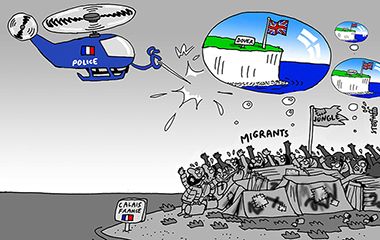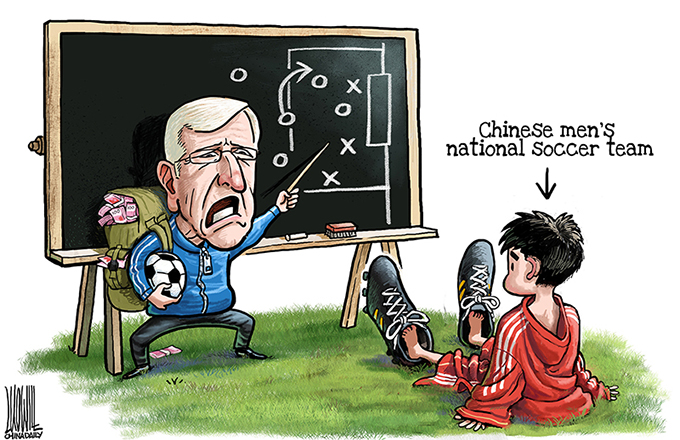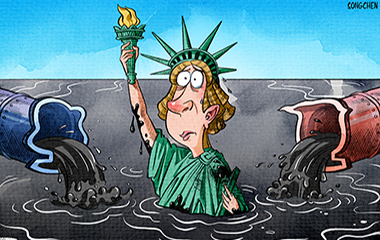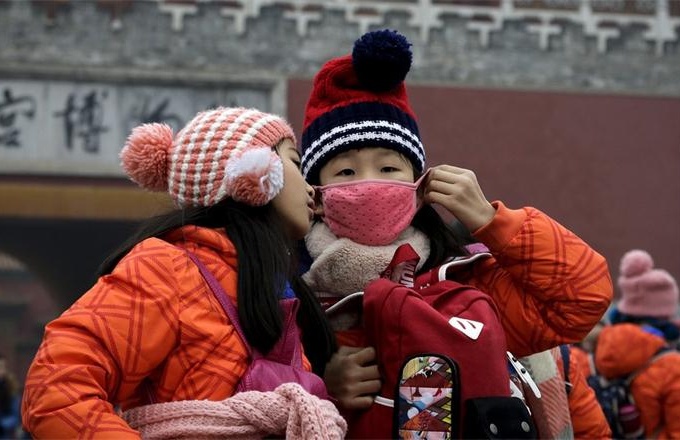Forcing poverty alleviation donations from civil servants goes way too far
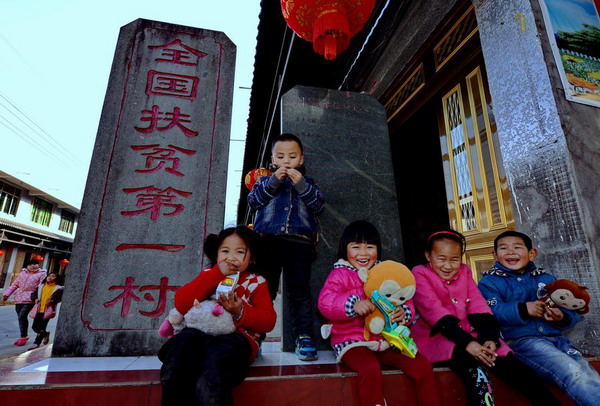 |
|
Children of She ethnic group sit in front of a monument that reads "China's No. 1 Poverty Relief Village" at Chixi Village, Panxi town, Fuding city in East China's Fujian province, Feb 14, 2016. The village has shaken off poverty thanks to assistance from Party and government officials at all levels over the past 30 years. [Photo/Xinhua] |
CIVIL SERVANTS IN YONGSHENG COUNTY, Southwest China's Yunnan province, were reportedly forced by the local government to make poverty alleviation donations of about 11.8 million yuan ($1.7 million) in total. Beijing News commented on Saturday:
As a national-level poverty-stricken county, it is right for the Yongsheng government to give priority to the fight against poverty. But that cannot be done at the expense of local public servants, some of whom had to borrow money so they could afford to make their donations.
For the Yongsheng poverty alleviation authorities, soliciting financial support for the underprivileged is their job, yet that does not justify them forcing government workers to make donations of a certain amount. They have no right to abuse their power under whatever name. The new Charity Law enacted on Sept 1 forbids forced donations
True, the donations were not compulsory and failing to pitch in as required would not court punishment. But they would have a price to pay if they refused to make the payments, as criticism from their colleagues and supervisors would haunt them for the rest of their careers unless they resigned.
The donations that government employees are "advised" to make, therefore, are in fact forced donations. But whether or not the Yongsheng government has violated the new Charity Law remains to be seen.
Instead of making poverty alleviation a vanity project reducing poverty, governments at all levels should implement efficient policies to help those in need.
- China's battle against poverty marches on
- Rural tourism leads fight against poverty in Gansu
- Gansu official says agriculture key to poverty relief
- Large fund supports anti-poverty effort
- Targeted efforts to achieve 2020 poverty elimination goal
- Accountability to accomplish tough finale of poverty relief





